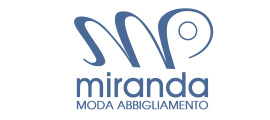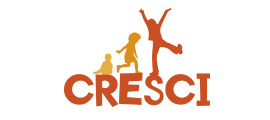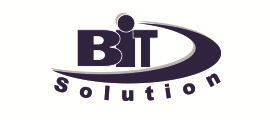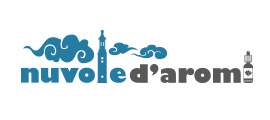How to improve your writing style?

There is always a need to figure out how to improve your writing style . This applies to those who have to write a book or deliver an in-depth study. Or maybe he has to write a technical report. Not forgetting who wants to write a letter.
There are students who ask how to improve essay writing, professionals who want exercises to learn how to write like a pro. Are there any exercises to follow? Here are some tips for finding the right writing style .
Learn to use punctuation
Writing well means learning to close periods . It helps you manage the syntax, a decisive element in delivering quality content.
Short words, short sentences, short paragraphs – that's David Ogilvy 's advice, and this is the route you need to go. To do that, you have to work well.
Punctuation defines the style of a text. It is communication, it is meaning. Punctuation is the rhythm of reading. Through a series of graphic elements (point, comma, semicolon, colon) you can transform the reading of a content.
The legibility of a text also depends on punctuation. Especially by his absence. If you want to hinder the good reading of a text you have to be stingy with full stops , commas and colons. Don't invoke stream-of-consciousness.
Don't mention Svevo, Jack Kerouac and Joyce: in these cases there is a narrative construction to support the absence of punctuation , and the almost dreamlike language.
About Jack Kerouac: from his On The Road I learned the writing style instinctively, straight away. Create, let your hands slide over the keyboard and let yourself be carried away by the ideas that envelop your mind. The only drawback: attention to proofreading (proofreading).
Press the topic of the content
A piece of writing – essay at school, newspaper article, technical report, blog post, letter to a friend – must not deal with more than one topic, properly in-depth and without ancillary stories. Yes, that story of yours about is bloody funny , but if it's not useful for what you're writing, you risk only distracting the reader. So avoid it.
Users are comfortable with content that addresses a specific theme, without digressing . The same goes for Google. Do you have to write a long article to position yourself? No, better a complete post. Not necessarily long but concentrated.
Avoid constant insights
How many times in your school career did you go off topic ? It often happened to me, because I had a great desire to present my ideas. I saw themes as containers to be filled with thoughts and conjectures, connecting everything and everyone.
You have to give the most important information, not all the information.
Relevance is a decisive aspect. With practice I learned to focus on the track, giving the right space for insights. A valid content manages to satisfy the needs of the reader, to anticipate curiosities and details.
Postponing every word for further study means weighing down the posts : you make them part of an encyclopedic knowledge that does not belong to you. Sort out insights and use internal links to satisfy readers' curiosity.
Create the creative and productive path
It is often recommended to tackle the most difficult tasks first, the most complex phases. I tell you: identify your strategy, develop your path. Don't follow the crowd.
Learn to write, relearn. Don't align yourself with the notions heard in the classroom, at school. You don't have to start with the title, you don't have to have an outline in front of you to write well. Let the flow flow on the page. Without rules.
Maybe that's why you keep procrastinating: you haven't found a method. But maybe you don't need it and keep importing a schema. Try to be free , to write with passion. I know, it's difficult. But here is the real secret.
Don't give up on good ideas
Always carry a notebook, a notepad, a smartphone with an app for writing with you. Short-term memory only holds information for three minutes, so you need help capturing ideas on paper (even digitally).
I put this suggestion into practice to be able to write every day, but in fact I have always followed it for any job . When I was reporting or dealing with news.
What exactly does it consist of? Take advantage of the long waits at the bus or subway stop to order ideas , choose a good title, organize a lineup. Create a mind map with your ideas and come up with a winning headline or attack.
Always cut the first paragraph
This tip is intended for novelists who typically produce far more material than bloggers, but it can still help you crank out a block or two before you get a good grip on the piece. Try cutting the first paragraph from your post and see what happens. You can find a much more powerful opening.
It's hard to cut what you've written because you're afraid you have nothing to say , but you don't have to confuse content with smoke and mirrors. Readers will like it.
Value formatting
This is a decisive point. If you want to learn to write better you have to take care of the readability of the texts . In practice, you have to make sure that the work of the public is facilitated and benefited by a series of elements that can make the difference:
- Bold and italics.
- Bulleted lists.
- Titles and subtitles.
- Division into paragraphs.
To improve readability you should consider punctuation. Use short sentences, but also simple words that are easy for your audience to understand. Stated differently, you have to aim for the simplicity and efficiency of the writing.
You must never bore the reader
In order not to bore the reader, you have to intercept needs, you have to be good at understanding what people want. You have to meet the needs of the niche. But you also need to be able to create content that isn't too long. And here the discussion can arise.
People scan, true, but it's often the long articles that get the big results . Just as Hubspot 's research suggests. So? What do you have to do to not get bored? You have to figure out how to find your writing style and put your soul into it.
When people ask me how to write a blog post, I always answer like this: the reader should notice the difference. And immediately understand that you wrote it, with your experience and a unique ability to select what is needed.
Learn the art of direct writing
Realize this: People don't have to read everything. They don't have to view an article from start to finish, left to right. You have to learn to write with a knife and to remove what weighs down the text.
I use short sentences, simple words, direct structure. Then there are the internal anchors, elements and questions that call the reader's attention . Guy:
- Agree?
- All clear?
- Does it happen to you too?
- This is my idea.
- Here is my point of view.
Again, never forget microcontent. That is text strings that allow the author to clarify the topic with a few lines . Any examples?
Quality headline, subtitle, paragraph titles, anchor text, captions. Everything serves to create clarity , every element of the article is aesthetic and good form.
Eliminate the superfluous when you write
Cut out what you don't need. Sometimes you start the second chapter of a book and think, "But this is where it should start." A huge amount of information can be summarized through a small detail. Here's how to improve your writing style.
The tips to become a writing professional go through the economy of words. You have to remove what is not needed, less is more. Always.
Avoid going into detail when describing places or things, unless you want to bring the flow of the story to a standstill. This is the end of the job.
Leave out the part that readers tend to skip . Think about what you skip while reading a novel: Are the paragraphs too many words? Take off and don't put. Do you want a concrete example to grasp the writing style I'm referring to?
I like the simplicity and the ability to get straight to the point . Here are two examples taken from the opening lines of The Metamorphosis (1915) and The Trial (1925):
“Gregorio Samsa, waking up one morning from restless dreams, found himself transformed, in his bed, into an enormous filthy insect”; “Someone must have slandered Josef K., because without having done anything wrong, he was arrested one morning” .
There is no room here for long preambles, introductions or incipits : the reader is catapulted into the heart of the nightmare! For me he is among the authors who have marked my way of writing.
Pay attention to interlayers in the text
That is, pay attention to useless words and grammatical forms (actually, therefore, in good synthesis, that is, that is) that you insert almost unconsciously. Every writer has his own rubric of useless words, and the only way you can defeat them is by rereading. Maybe after a break of a few hours and not immediately after closing the post.
Always use the right terms in your copy
Sometimes we use weak terms or useless rounds of words to describe something. Using the right terms at the right time will make your writing more precise and dry, to the delight of your readers. Give the right role to the terms of the article.
When you write well you have to breathe
How to improve your writing style? Use the breath that at the beginning of your adventure is not coordinated with writing. So you don't feel the need for a break: you let the creative flow run. The hands on the keyboard are free to express thoughts and opinions. Consonants and vowels chase each other relentlessly. Safe.
But you were able to publish a paragraph with a comma. Maybe with two. But not even a point . This is poison for the readability of a text, it is the best way to alienate readers. When you reread your texts you need to work on punctuation.
But to do that you don't have to reread in your mind. That's the trick . To improve the syntax you need to read aloud. In this way the breath will give you a hand.
Start reading, start writing. When you are faced with a sentence that is too long , your breath will fail. You will start asking for oxygen.
Have you finished the first draft of a work? Read it aloud and pay attention to the result. Careful proofreading is one of the best strategies for improving writing, an important aspect that also applies to web writing, the work of copywriters and bloggers. Try to read the work as an outsider or, rather, as an enemy .
Avoid technicalities whenever possible
There is a great need for technical language, sometimes you use it only because you believe that in this way the article acquires an aura of untouchability . An untouchability of mediocre consistency, because the language of the sector does not make your thesis unassailable.
On the other hand, extreme technicality risks closing your work into too small a niche . Especially if you accompany it with a thorny syntax, with infinite sentences that look like a perverse game of Chinese boxes. You have to make yourself understood, professional writing is not synonymous with incomprehensibility: find your style.
Explore what you love, start writing
It's not easy to work in the world of writing. To do this you have to go further and train . This also means challenging your limits with advanced writing.
Write the text you want to read in your own style . If you don't want to read it, why should anyone else? You have to have confidence in your work to write a book.
The first few chapters can be erased and narrative energy must be focused on the point of change. When your character is new to a condition, or things change around, this is the time to complete the details of his world.
If you got lost in the plot, if you hit writer's block, go back to where things went wrong. Then take another route. Change a person . Change the weather. Change the aperture to improve writing output.
When you subscribe to the blog, we will send you an e-mail when there are new updates on the site so you wouldn't miss them.
By accepting you will be accessing a service provided by a third-party external to https://www.insightadv.it/


































































Comments